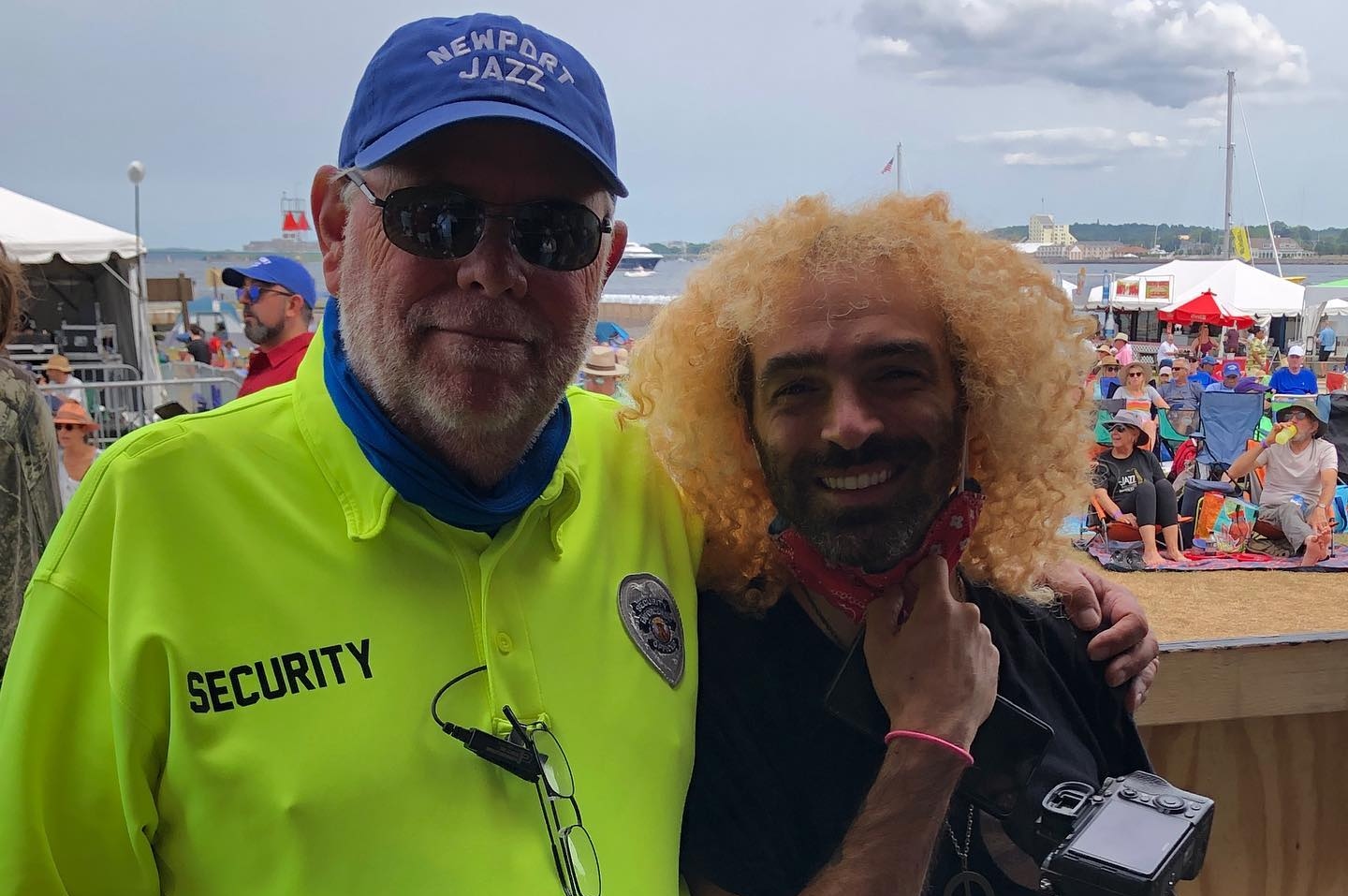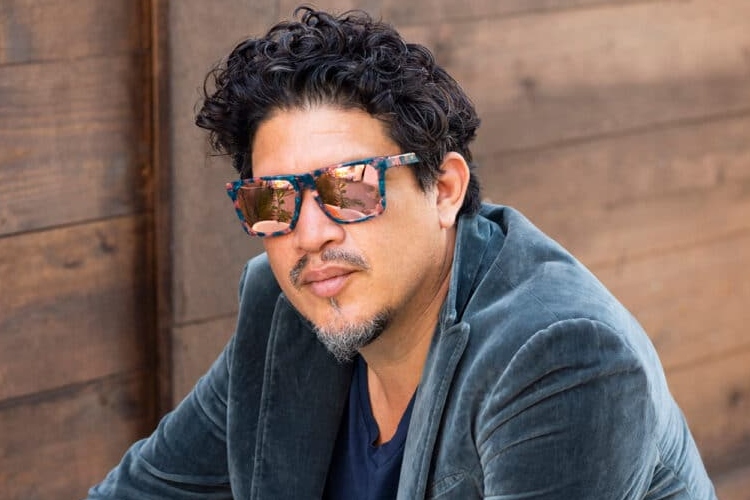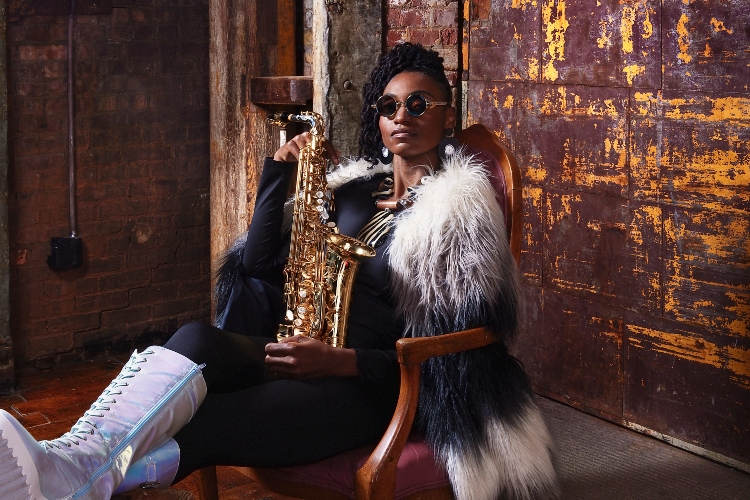Melting Pot of Old and Young: A Conversation with Newport Jazz Festival Security’s Ron Cudworth
|
Getting your Trinity Audio player ready...
|
This year marks the 70th anniversary of the Newport Jazz Festival’s founding in 1954. But the history is not as linear as it may seem. One can divide the seven decades into five different eras. Yet, as a lifelong Newporter like Ron Cudworth can attest, there is still a throughline between them all. He’s seen the Festival in nearly all of its incarnations. In the early years (1954-1964), his parents were among the attendees at Freebody Park. In his youth, the huge events at Festival Field (1965-1971) occurred right outside his front door. Cudworth was also there for the 1969 Festival, the “rock year,” when a near riot took place. Two years later, he witnessed the gate crash that led to a several-year exile to New York (1972-1980). Fittingly, when the Festivals returned to Aquidneck Island, the young boy who saw the chaos of those years worked hard as a member of the Festival’s security team to avoid it happening again. Having provided security since 1981, Cudworth is currently the second longest serving staff member of the Newport Festivals. He’s since seen the entirety of George Wein’s direction at Fort Adams (1981-2016) and, now, the McBride years (2017-present).
We continue our series on the history of the Newport Jazz Festival by stepping a little behind the scenes with Cudworth to discuss his role providing security at the Festival, his growing up in Newport, and the relationship between the two.
PG: So to start, you grew up in Newport?
RC: Right. Yes, I did.
PG: Do you remember when you first became aware of the Jazz Festival?
RC: Alright, I’ve got a little story to tell you. When I was thirteen years old, my family lived on Girard Ave., which was basically where the festivals were. At the time, the Festivals took place at Festival Field, between [JT] Connell Highway and Girard Ave. When the Festivals were there, I used to need a pass to get into my own house. If you didn’t live on that street, you were not getting on that street.

You could almost see the main festival gate from my house. It was very different back then. Everyone had a reserved seat. You didn’t bring a blanket in and set up camp. The stage, the dressing rooms, and the rest were all permanent structures, not tents that were only there for a few weeks. Actually, in the winter, when the festivals were away, we kids used to swing off the stage and dive right into the snow. That’s the way it was back in those days. You couldn’t do that today, even if the structures were still there. You wouldn’t be able to get away with it.
But, anyway, when I was thirteen years old, my father told me I could go up on the hill overlooking the Field if I wanted. And that’s where I saw Led Zeppelin, Ten Years After, and Sly and the Family Stone. We found a spot near a tree or the best spot in the grass and got ready for the night show. It was all over by ten-thirty or eleven, and it only took around five minutes to return home.
PG: So, the year you went was the 1969 Festival that some have referred to as the “rock year.”
RC: Yeah. All my life, my father was a big jazz fan. His favorites were Dizzy Gillespie and Dave Brubeck. And, so, that’s what I grew up with. Actually, my grandparents used to watch us kids so my mom and dad could go to the jazz festival when it was at Freebody Park back in the early 60s. So, while I didn’t begin working for the Festivals until they returned from New York forty-three years ago, it has always been a part of my life.

PG: So, if you look at historical reports, people claim there were many strung-out hippies up on the hill.
RC: Oh, yeah. It was when the generation went from the Beatniks to the hippies. I was also there the night the fence came down.
PG: The riot in 1971 that led to the Festival relocating to New York for several years. You have now done security for the Festival for decades. Have you kept that experience of seeing the fence crash in mind while doing security, to try to avoid something like that?
RC: Well, the difference with [Fort Adams] is that there is one way in and one way out unless you come by boat or helicopter. Because of that, it is much easier to control the crowd. It is very different from back in the early days when people could come from the bottom, the top, the woods, and people’s homes. There was very little ability to stop people from coming in.
PG: How did you start doing security for the festivals?
RC: I’m a bartender at the Elks Lodge in Newport. There was a gentleman there named Gordon Sweeney. Gordon used to set up for the festivals. He came to me one day – I was twenty-three years old – and said, “You’re a good bartender. You’re an honest guy. You’re clean. How would you like to come and work for me?” And that’s how it started. And I’ve been there ever since.


PG: And that was in 1981, the first year the festivals returned to Newport?
RC: Yeah, right when it came back from New York.
PG: Even though there are many more security restrictions at the Fort than at Festival Field, was the security crew in 1981 especially concerned because the last time the Jazz Festival happened in Newport, there was a riot?
RC: Well, the way people were grouped up was like having a bunch of cattle confined to one area, and you couldn’t go anywhere other than through the main gate. When the Jazz Festival first came back, there was only one stage. There was no Quad or Harbor stage back in those days.
Actually, you couldn’t even get behind the back of the main stage into the quad. Back in those days, the Fort was in deplorable condition. None of the quad area was clean. It was unsafe to go into the areas back there. Of course, now, they have the bunkhouse and bathrooms. It’s where artists hang out. But back then, it was just a very beat-up area. The Fort Adams Trust has done a lot of work over the years to fix it up. The Fort has come a very long way since then.
As a matter of fact, I used to work security for the back alley. I did that for twenty-five years before I went in front of the [the main stage]. I’ve been in front of the house for nineteen years now. But I was in that alley for so long, for both festivals, that some people even call it Ronnie’s Alley. Another thing to mention is that we used to have to wear white shirts and ties back then.
PG: Why?
RC: That’s what Gordon wanted, and he was the boss. And if you did your job, they paid you thirty-five dollars per day and gave you a T-shirt and lunch. And during your break, you could go up and watch the show. It was all never really about the money.
PG: If you started working for the Festivals in 1981, you must be one of the most senior people on the team.
RC: I’m the second most senior employee at the Festivals. There is a gentleman named Tom, who has been working for the Festivals for two years longer than I have. So, he’s been with the Festivals for forty-six years. He got involved with them in New York; two years before they came back to Newport.
PG: What do you enjoy most about doing security either back when you started or now?
RC: What I enjoy about it now is the group of people I get to spend time with. It’s a melting pot of old and young. It’s just much more friendlier now. Before you were all boxed in and had nowhere to move. Now, if you don’t like something, you can go to another stage or go out and do your shopping, or you can go down to the water. Before, you couldn’t do all that. You were just stuck in one place. The Festival organizers have also made them more family-friendly. There’s still very little shade – as you know – but across the board, they have made it all a lot nicer.
PG: Making it more family-friendly presumably also makes it easier to maintain order. In your years doing security for the festivals, what is the craziest thing you’ve seen?
RC: The craziest thing I’ve seen. Well, there was one weekend where it rained so badly that the field completely turned to mud. It was fascinating to watch everybody just slipping and sliding. It brought back the old Woodstock days because that’s exactly what people were doing in the mud there. So many people were dancing, diving in the mud, and having a ball. That was the craziest thing I could remember.

PG: So, what exactly is it like to provide security at such large events?
RC: Well, my day is longer than most people. It starts at six in the morning, and I get out around eight-thirty at night. And I do that for three days each of the Folk and Jazz weekends. I also work behind the scenes – a couple of us do – where we have to go through all the vendors, the working crews, and their vehicles to make sure that they’re not bringing in anything contraband. The vendors and crew respect us and know we are doing our job, so it is pretty easy. Then, during the actual event, we help guard the stage as well.
PG: Did you ever provide security for the Jazz Festival’s Friday night concerts they used to hold at the International Tennis Hall of Fame?
RC: I did. I did every Friday night concert that they put on. I was up at the front of the house, along with another gentleman named Mike Kane, Jr. Mike covered stage right, and I did stage left. We did that for all the years that it was up there. We would also walk all the artists from the dressing room to the stage and back.
I’ve had some great times. I’ve met quite a few people. My wife jokes all the time that I was spoiled and still am. I’m not a big autograph person or interested in taking pictures with artists. I just get them to where they need to go. Let the photographers in the pit do their job and take the pictures. I keep my people in the pit safe while they’re doing the photography. In the process, I’ve become friends with almost all the photographers. They respect me, and I respect them. We get along very well. As a matter of fact, I’ve never had a problem in the nineteen years I have been at the front of the house.
PG: Of course, many of those photographers you have likely seen year after year. One of the best things about going to Newport each year is seeing and catching up with people.
RC: Yeah, and not just photographers either. I saw [Newport Folk Festival Producer] Bob Jones’ kids grow up. I remember when they were only six or seven and nine or ten. And now they are all grown up. It’s crazy. One of the kids is now the Editor-in-Chief for Vanity Fair. Of course, now, Bob’s no longer with us. Who is? George [Wein] is gone too. Now I’m the old-timer. And that’s sad, but the show must go on as they say. I’m just grateful that I’m still here.
The 2024 Newport Jazz Festival will take place at Fort Adams in Newport, Rhode Island from August 2nd to 4th, 2024. More information can be found on the Festival’s website.
Photo Credit: Steve Klamkin




What a great guy, Ron is a joy to work with at the Festivals. It’s great to learn Ron’s “backstory”, and you’ve chosen the perfect photo with Bryan to accompany the story. What you may not know is that Ron was the best dressed man at those Friday night shows at the Tennis Hall of Fame.